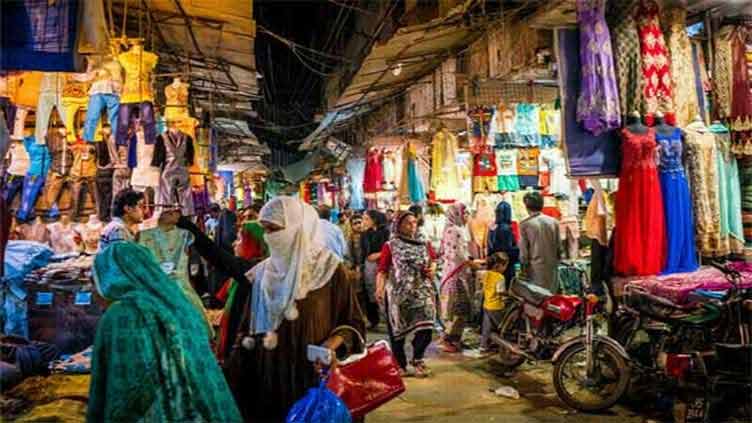Eid shopping under the cloud of inflation

Pakistan
The sluggish business activity ahead of the most popular festival is due to high prices of items
By Arshad Shafiq
Eid is just around the corner, but shopping has not picked momentum in most parts of Lahore.
The sluggish business activity ahead of the most popular festival is due to high prices of items, and dwindling purchasing power of customers.
Before Covid, businesses were relatively booming. Even with the start of Ramazan, Eid shopping would begin and reach its peak at Chand Raat and end just before the start of Eid prayers.
SALARIED CLASS HARDEST HIT BY INFLATION
Salaried class is the hardest hit by inflation. Minimum monthly salary is fixed Rs37,000 by the government. All employers don’t give this amount to their employees. It is too meagre to meet the basic needs.
It is hard to afford skyrocketing prices of daily use items, soaring utility bills, house rent, etc. with this amount. How a family with this meagre salary can do Eid shopping.
Interestingly, mostly those we see in markets are the ones who do shopping for their children, but not for themselves.
FLEA MARKETS SEEM OUT OF BOUNDS
Flea markets, which used to be a great relief for money-strapped consumers, have nothing for them as they are overtaken by brand-conscious buyers, who pay whatever price a shopkeeper demands. Clever shopkeepers await them and ignore those who tend to negotiate.
There was a time when a flea market used to be a great relief for the poor. They could do shopping from this market without disturbing their budget but now it is not possible.
“Second-hand clothe markets, known as Landa Bazaars, are usually thought to be the shopping place of lower middle class or poor people for their economical rates.
Also Read: Eidul Fitr likely on March 31 in Pakistan
“I had been doing Eid shopping from Haji Camp - a flea market of Lahore - before coronavirus. Unfortunately, this place has become out of bounds for hundreds of thousands of people who hardly make ends meet,” said an Eid shopper, accompanied by his children.
He told Dunya News, “Flea markets are now frequently visited by those who know which brands of shoes, shirts, jeans or trousers are in vogue. The moment they catch sight of any item of the brand they know, they immediately pick up at the price whatever the shopkeeper demands. These people are to blame for increasing price of second-hand clothes, shoes and other garments.”
Several buyers reveal to Dunya News that they have not been doing shopping for themselves for long, but children don’t understand economic situation of their parents.
A shopkeeper blames high rent, taxes, and high cost of importing second-hand goods for skyrocketing prices of articles.
Besides rent, we pay monthly sum to traffic police and district government staff, otherwise they create hurdles in our business on one pretext or another.
A Naulakha Bazaar trader said Haji Camp, Landa Bazaar, and Naulakh Bazaar are thought to be shopping havens for those who have low income.
Shopping centres such as Panorama Centre, Anarkali Bazaar, and Liberty are virtually no-go areas for those who have limited income.


